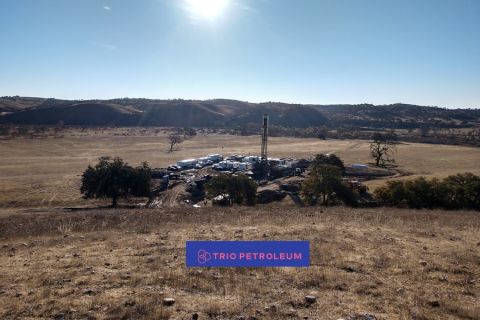I made every effort to validate the information I’m sharing with you today, but unfortunately, I was unable to find the source. If this author is correct, the US taxpayers have a HUGE bill to pay. The blog where I found this write-up opens with an expression of incredulity about the agreement BP came to with the White House that requires the company, among other things, to compensate rig workers laid off because of the presidential ban on drilling. The agreement, according to the writer, began to make some sense when he learned that the US $20 billion escrow fund will be funded over a span of four years, with only $7 billion paid out in 2010. “Since Oil Companies focus principally on cash flow,” he wrote, “I started analyzing the cash flow aspects of the settlement.” The writer posits the argument that BP’s US operations are conducted through a US subsidiary which files a US tax return for operations conducted under this legal umbrella. If in fact BP’s funding of the escrow account is purely voluntary, there is no legal basis for enforcement. “However, in my opinion, generally accepted accounting principles (GAP) will require BP to book the $20 billion accepted liability in the year it was incurred – 2010,” the writer says. “As such, BP can claim a $20 billion deduction on its US 2010 tax return and collect refunds from the Federal government of some $7 billion in 2011, either on its 2010 tax return or through loss carry backs to 2005 through 2009, obtaining refunds of taxes paid in those years.” Interestingly, the $7 billion tax write-off corresponds exactly with the $7 billion payout that will take place this year. Makes one wonder if the analyst is on to something…. Because BP has agreed to pay no quarterly dividends for the last three quarters of 2010, he says, the company will save approximately $7.5 billion in cash flow (as an aside, he points out that 40% of these dividends – or some $3 billion – are paid to US residents). To the extent this income is distributed to taxpayers, he explains, the US government revenues will be reduced by at least 15% to 35% of the taxable amount. He provides the following analysis of cash flow impact on BP in 2010: Escrow funding $7,000,000,000 Dividend savings $7,500,000,000 Tax savings/refunds $7,000,000,000 Net BP favorable 2010 cash flow $7,500,000,000 Meanwhile the US government’s cash flow will look like this: Reduced tax receipts: From BP Cor. $7,000,000,000 From BP shareholders as much as $1,000,000,000 Net unfavorable cash flow $8,000,000,000 If his analysis is right, BP will be in a net favorable cash flow position until sometime in 2012! At that point, the analyst says, it should be clearer what BP’s exposure is, putting the company in a good position (without any net cash outflow) to decide whether to fold its US operations through a bankruptcy if it appears that liabilities from the incident are going to exceed the net realizable present value of its US operations at the time. The writer says liability for the balance of the escrow will be unsecured with no preference over other creditors. The upshot of this is that the balance of the $20 billion may never be paid. “In the interim,” he writes, “you can believe that there will be no advances to or investment in the US operations by its parent, and every opportunity will be taken to repay any amounts owed to the parent. In the meantime, BP can claim credit for being a responsible corporate citizen and will have put a stop – albeit perhaps only temporarily – to the daily pillorying by the ‘lame stream’ media and politicians.” In the meantime, the politicians can take credit for being tough on BP. “You can believe from BP’s standpoint, it has capped its liability, and unless it makes major new discoveries by the US subsidiary in the interim, that cap is no more than $20 billion and quite possibly something less than that amount,” he writes. According to the writer, the fines will not be deductible, but the tax write-offs will be huge. Meanwhile, he says, BP makes no apology, stating that it is observing the US tax laws as any other corporation would and has a responsibility to its shareholders. So will the US taxpayers really end up picking up the bill? Only time will tell.
Recommended Reading
Exxon Mobil Guyana Awards Two Contracts for its Whiptail Project
2024-04-16 - Exxon Mobil Guyana awarded Strohm and TechnipFMC with contracts for its Whiptail Project located offshore in Guyana’s Stabroek Block.
Deepwater Roundup 2024: Offshore Europe, Middle East
2024-04-16 - Part three of Hart Energy’s 2024 Deepwater Roundup takes a look at Europe and the Middle East. Aphrodite, Cyprus’ first offshore project looks to come online in 2027 and Phase 2 of TPAO-operated Sakarya Field looks to come onstream the following year.
E&P Highlights: April 15, 2024
2024-04-15 - Here’s a roundup of the latest E&P headlines, including an ultra-deepwater discovery and new contract awards.
Trio Petroleum to Increase Monterey County Oil Production
2024-04-15 - Trio Petroleum’s HH-1 well in McCool Ranch and the HV-3A well in the Presidents Field collectively produce about 75 bbl/d.
Trillion Energy Begins SASB Revitalization Project
2024-04-15 - Trillion Energy reported 49 m of new gas pay will be perforated in four wells.





